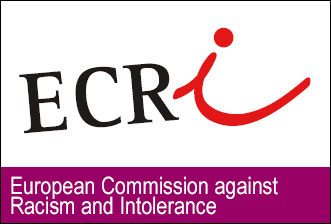Michal Balcerzak, Chairperson of the Committee on the Elimination of Racial Discrimination (CERD), the United Nations anti-racism body, and Bertil Cottier, Chair of the European Commission against Racism and Intolerance (ECRI), the Council of Europe’s anti-racism body, call for renewed commitment to address structural discrimination and institutional racism.
The year 2025 marks the 60th anniversary of the International Convention on the Elimination of All Forms of Racial Discrimination, which is of high relevance in these times of democratic backsliding and growing questioning of the basic principle of equality in different parts of the world. All States parties should unequivocally ensure full and effective implementation of the Convention, and those states that have not yet made a declaration enabling individuals and groups of individuals to file petitions before CERD should do so without delay. “Sixty years after the adoption of this key international treaty, racism and racial discrimination, including racial profiling practices, continue to tear apart the lives of many individuals and communities belonging to various groups of concern to CERD and ECRI in numerous countries, such as Africans and people of African descent, Asians and people of Asian descent, Roma and Travellers, and foreign nationals, including refugees, asylum seekers and migrant workers”, stated the Chair of CERD. “Deep-rooted prejudices, which are historically connected to slavery, colonialism and various forms of segregation, continue to contribute to widespread racial discrimination, marginalisation and exclusion”, he added.
It has become urgent for states to eradicate any form of structural discrimination and institutional racism when they come to light. “Through its country monitoring work, ECRI has analysed broader societal structures, institutions, and practices that may have contributed to racial inequalities. ECRI’s recent findings suggest that practices amounting to racial profiling, notably by law enforcement officials, emerge, persist or spread”, said Bertil Cottier, ECRI’s Chair. “Some states have taken a set of measures to make clear that racial profiling is illegal, commissioned detailed independent studies or conducted inquiries to determine whether and to what extent such practices exist, organised police training and awareness-raising activities, and took steps to address any underreporting, whilst no or little action – by ignorance, neglect or indifference – has all too often been observed in other states”, he continued.
At European and international level, ECRI, CERD and other specialised independent human rights bodies, such as the Working Group of Experts on People of African Descent and the Expert Mechanism to Advance Racial Justice and Equality in Law Enforcement, pointed to risks of widespread patterns of racial profiling practices by police officers and other law enforcement officials. In this respect, reference should be made to ECRI’s General Policy Recommendation No. 11 on combating racism and racial discrimination in policing and CERD’s General Recommendation No. 36 on preventing and combating racial profiling by law enforcement officials as well as Resolution 2364 (2021) entitled “Ethnic profiling in Europe: a matter of great concern” of the Parliamentary Assembly of the Council of Europe (PACE).1
On this International Day for the Elimination of Racial Discrimination, the Chairperson of CERD and Chair of ECRI urge States parties to the International Convention on the Elimination of All Forms of Racial Discrimination to redouble their efforts to address racial discrimination in all its forms and call on government officials to effectively address the problems emanating from structural discrimination and institutional racism, including racial profiling by law enforcement and other public officials. Any form of racial discrimination within law enforcement agencies and other public institutions mirrors racism and inequalities in the society at large. Far from being a mere speculation, structural discrimination and institutional racism continue to threaten the enjoyment of human rights and perpetuate systemic injustice and oppression. It is CERD’s and ECRI’s duty to raise these challenging issues and it is the duty of states to consider CERD’s and ECRI’s findings very seriously and to act in light of their recommendations.
The Committee on the Elimination of Racial Discrimination (CERD) is the United Nations treaty body that monitors the implementation of the International Convention on the Elimination of All Forms of Racial Discrimination by its 182 States parties. It is composed of 18 independent experts.
The European Commission against Racism and Intolerance (ECRI) is a specialised human rights expert body that monitors action against racism and intolerance across the 46 member states of the Council of Europe. It is composed of 46 independent experts from each member state and two independent observers from observer states to the Council of Europe. All 46 member states of the Council of Europe are parties to the International Convention on the Elimination of All Forms of Racial Discrimination.
The United Nations designated 21 March the International Day for the Elimination of Racial Discrimination in 1966, in memory of the 69 people killed by police officers six years earlier in Sharpeville, South Africa, during a peaceful demonstration to protest against the apartheid “pass laws”.
1 See ECRI General Policy Recommendation No. 11, CERD General Recommendation No. 36 and PACE Resolution 2364 (2021). See also ECRI statement on racist police abuse, including racial profiling, and systemic racism adopted by ECRI at its 82nd plenary meeting (30 June – 2 July 2020) and the factsheet (2023) on preventing and combating racism and intolerance within law enforcement agencies published by the ECRI Secretariat. See also ECRI’s 2024 annual seminar with equality bodies (17-18 October, Strasbourg).




